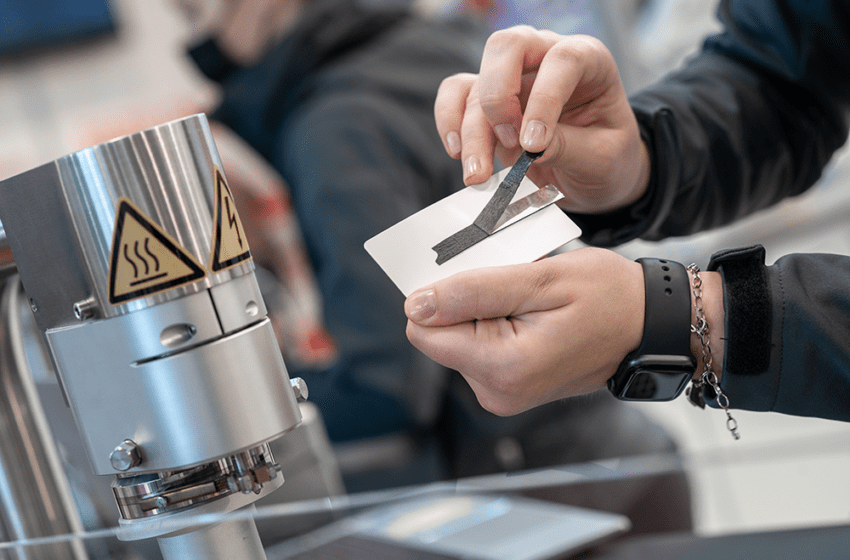
New Automotive Innovation From Plasmatreat and Glaub Automation & Engineering
|
Getting your Trinity Audio player ready...
|
Groundbreaking cooperation between two specialists: Plasmatreat GmbH and Glaub Automation & Engineering GmbH presented an innovative solution for the automotive industry at Fakuma 2024. The focus was on the combination of surface treatment with Openair-Plasma and subsequent fully automated tape application, which offers manufacturers new possibilities for optimising their production processes.
Adhesive bonding is one of the key technologies in modern vehicle construction. It provides manufacturers with a high degree of flexibility and supports lightweight construction, e.g. by eliminating mechanical fasteners and increasing the variety of materials. Adhesive tapes have established themselves as an effective solution in this area, especially for attaching add-on parts.
Plasmatreat GmbH, the global market leader in atmospheric plasma technology, and Glaub Automation & Engineering GmbH, one of the leading developers and integrators of automated systems, showed a combined process in Friedrichshafen that significantly improves the quality, efficiency, precision and environmental compatibility of this work step when used inline in the production process.
Live demonstration of automated process
When high-energy plasma comes into contact with materials, it changes their surface properties, improving the efficiency and precision of manufacturing processes. This technology offers particular advantages when joining non-polar plastics or when combining plastic and metal or plastic and glass. It makes production more cost-effective and environmentally friendly. It also ensures consistently high joint quality, which is particularly important in the automotive industry.

Trade visitors to the Fakuma were able to experience the combination of the Plasmatreat surface treatment process and the application of Glaub tape first-hand. Plastic test specimens were first pretreated with Openair-Plasma and then automatically taped on Glaub’s demo system. On-site tests illustrated the effectiveness of the plasma effect.
Practical application examples:
The automotive industry in particular benefits from these advantages, as current application examples from the Plasmatreat portfolio show.
- Automotive headlights made of material combinations: Surface pretreatment with Openair-Plasma improves the adhesion of adhesives and tapes during the assembly of headlights made of different materials.
- Recycled plastic dashboard: Openair-Plasma surface pretreatment creates a stable bond between recycled plastics and other materials. In this way, the technology supports lightweight and contributes to greater sustainability.
- Batteries (cell-to-cell bonding): One of the biggest challenges in battery manufacturing is thermal conductivity. Plasma activation of surfaces increases adhesion and ensures optimal bonding of cells with adhesive or double-sided tape. This improves the performance and lifetime of modern battery systems.
Plasma treatment and tape application will continue to drive the production of durable, high-quality joints in the automotive industry. “By combining plasma technology and automated production, we offer our customers solutions that increase both efficiency and quality while being more environmentally friendly than conventional processes,” said Joachim Schüßler, Sales Manager Germany at Plasmatreat GmbH.
Read more news from Plasmatreat here.
Plasmatreat
07725 905768
Website
Email





